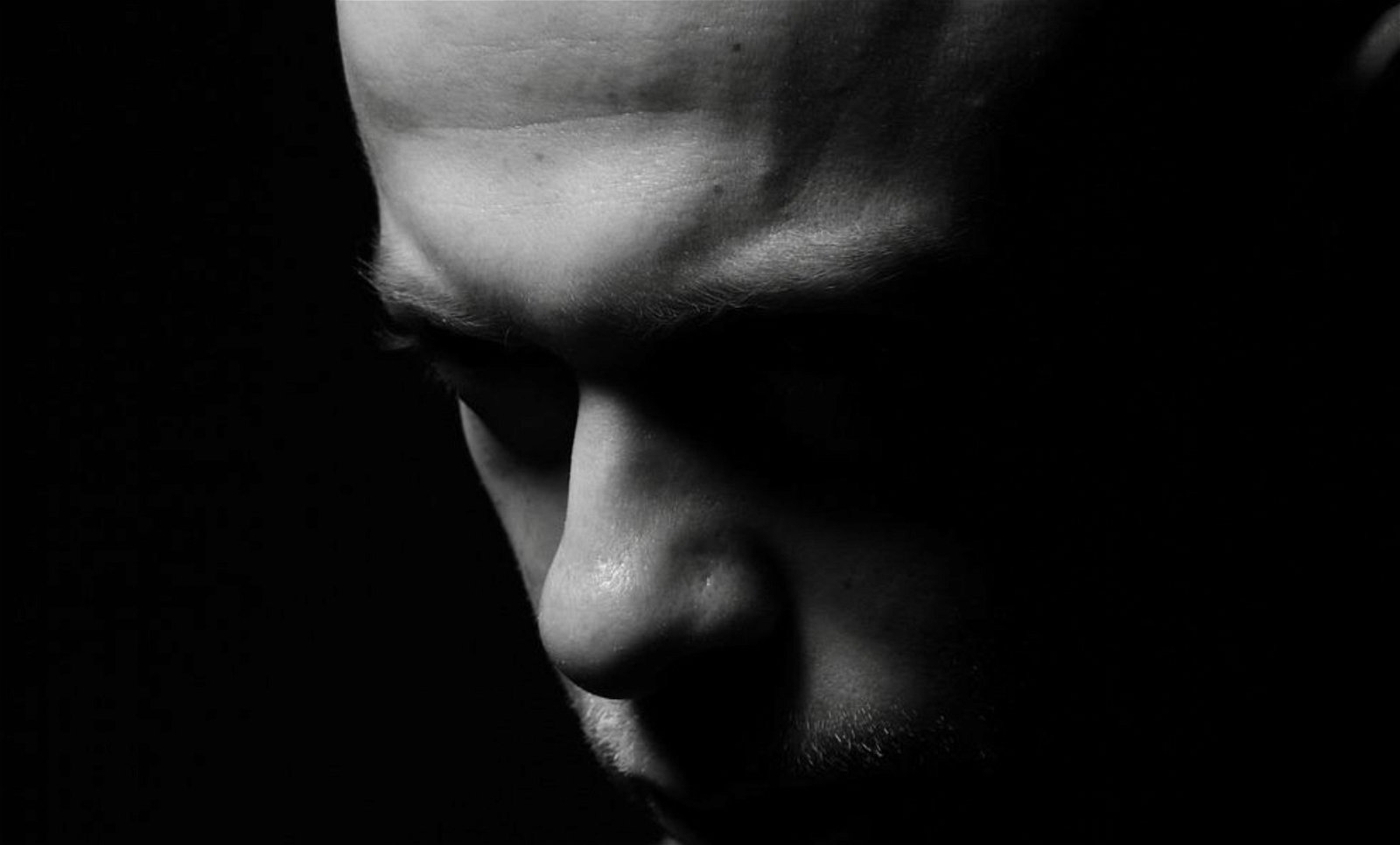In the early evening of August 12th, 2021, gunshots rang out on a quiet suburban street in Keyham, a suburb of Plymouth, England as a 22-year-old man killed his mother with a shotgun. Moments later, the shooter spilled out onto the street and began shooting anyone he could find. In all, he shot and killed five people, including a three-year-old girl, and eventually killed himself as police began arriving on the scene six minutes later.
The “Plymouth shooting,” in the early hours after the incident, appeared to be a random attack that began as a domestic crisis and spun quickly out of control. The shooter, diagnosed in his childhood with ADHD and autism, had a history of depression and breakdowns. It was and still is a tragedy, but as those initial hours of investigation continued, a darker mystery appeared in the shooter’s online activity.
Headlines began popping up all over the United Kingdom and the rest of the world, labeling the bearded curly-haired 22-year-old as an “Incel”–that is, part of an online community of mostly young men who share extreme views based on their perception of being unable to attract women sexually–and that his violent shooting was an act of terrorism.
As recent mass killings, such as the van attack in Toronto and the Highland Park shooting, seemingly place incels directly in the crosshairs of blame, it begs a big question: How do we handle alleged radicalism and terrorism in a purely online ecosystem where no organizational unified principles or structures exist, and where ideological communities blend into one another with ease?
I, Incel.
“‘Incels’ isn’t a movement. A movement is a group of people bound together by a common goal,” explained Naama Kates, the host of “Incel,” a podcast that explores the murky depths of Inceldom. “Incels don’t have a goal; they’re fatalists.”
Incel is a term used to denote someone who is an ‘involuntary celibate’ and participates in the online subculture of like-minded individuals struggling to find meaningful romantic and sexual relationships. The term “incel” originated in 1993 when a Canadian university student created a website to discuss her lack of sex life. As the decades rolled by, the term and community have evolved and been appropriated into a subcultural segment of a broader community of “men’s rights activists” known as the “Manosphere.”
“People find what they say abhorrent, understandably,” Kates explained.
Incel forums and discussion channels are incredibly misogynistic and violent and express hate towards women (referred to as ‘femoids’). Posters often praise “Saints,” mass murderers who, they believe, killed in the name of the incel cause. Many incel posts carry the subcultural ideology that suggests women are only interested in physically attractive sexual partners, known as “Chads.” With the help of dating apps and the internet, incels believe that women can easily find these attractive partners, leaving them to wallow in celibacy. However, this exterior is built upon a complex conspiracy. Incels who are “red-pilled,” The Matrix phrase used by white supremacy groups and the QAnon movement to be “awakened,” believe that men do not truly hold any power and privilege in society; and that feminism has shifted all that power to women. Incels generally believe that, in this new feminist age, a woman is no longer limited by her “sexual market value” and that all this freedom to choose a possible romantic partner has ruined the natural order of romantic interactions between men and women. Some incels have taken “the black pill,” which expands upon the “red pill” conspiracy into a sort of biological fatalism. Incels believe they are celibate because of biological and physical characteristics such as skull shape, height, and bone structure, and that since women have access to generally any male partner they want, the incel is doomed to the single, celibate life for all eternity.
According to Kates, who is openly more sympathetic to the incel subculture, this is why they venture to incel forums to post. She claims it provides these young men a catharsis of sorts to be amongst others who are similar.
“All their venomous spewing is kind of a defense mechanism. ‘If you don’t want me, I don’t want you either,'” Kates explained. “Yes, though a lot of it is hyperbolic and shit posting, it is very misogynistic. Even the moderate and reasonable incels generally believe that women are privileged, societally.”
However, with all the misogyny, hatred, and dehumanization of women, there are commonalities between the supposed shitposting of incels and other radicalized groups who exist online.
The Conspiracy Singularity
VICE reporter Anna Merlan wrote a feature in 2019 arguing that the “Conspiracy Singularity” has arrived, a moment where multiple conspiratorial communities have similar memes, lexicons, and ideological frameworks that merge together. Merlan notes that a “cultural underground” exists where disdain is shown for any established narrative. While underground movements have existed for centuries, social media has brought them together quickly and effectively.
Since these communities dwell primarily online, it stands to reason that several commonalities will exist. For incels, many of whom hold alt-right political leanings, the use of the term “red pill” is an obvious nod to a host of online right-wing conspiracy movements, most notable of which is QAnon. The push to subjugate women is a popular message of various alt-right communities. Looking to Reddit or 4Chan, where many begin their journey down the rabbit hole of conspiracies before moving to fringier parts of the internet, it becomes apparent that language and ideologies between various male-focused conspiracy groups are intertwined with the general trolling and shitposting language of the internet.
Any level of misogyny is morally indefensible, and upsetting “normies” seems to be the law of the internet jungle, but this jungle is complicated. Inceldom isn’t a movement with an enshrined political framework or set leadership. Like any online subculture, be it ‘gamergate’ supporters or Star Trek fans, there is always a unifying factor (misogyny, for incels). Still, the scope and range vary, and no bar establishes someone as a community member. For security and extremism experts, all these variables create a dilemma.
According to Robert Pape, author of Dying to Win: The Strategic Logic of Suicide Terrorism, radicalism turns into violent terrorism when the individual perceives a threat to their way of life or homeland. Pape argues that the violence all hinges on clear political goals and that their violent act will serve to remove that threat. To put it simply, terror groups have clear, direct, and unified agendas to deal with the perceived threat. The horde of internet conspiracists, shitposters, and incels do not.
“They are radically misogynist, but they’re probably not radical in the way that we see radicalization right now,” explains Kayla Preston, an extremism researcher at the University of Toronto and co-author of The Black Pill: New Technology and the Male Supremacy of Involuntarily Celibate Men. “So when we think of radicalization, we think of Neo Nazi-ism [and] white supremacy. There is some of that, and I’m not denying that at all. There are definitely people who valorize Hitler on these [incel] forums. But we’re not seeing radicalization in the typical sense of how we think of it right now.”
The Nihilist Terrorist
Some experts argue that the lack of a clear plan or political motivation pushes some individuals in these communities to carry out violence.
“Within the ideologically nihilistic online space, disconnection and broad discontent with society is central to the worldview, and active rebellion against society in one form or another is often encouraged,” writes researcher Dr. Simon Purdue.
Purdue argues that the scores of young men who make up the incel community and other similar fatalist communities can quickly turn to violence because they believe their actions do not matter. Their online worlds are full of violent imagery that “desensitizes” them and “that death is seen as something to be accepted or even praised.”
Preston agrees, to a point.
“There is this kind of nihilism, especially in North America and Europe. We have a generation of individuals who experience this constantly. There are fewer jobs, there are recessions, wars, and things aren’t going the way they thought they would go when they were raised,” Preston says. “However, in North America, we do live in a patriarchal society that tells young men that they should be expecting certain things, like that women will be available to them, and if they’re not, there’s a problem with them, or there’s a problem with society. That allows them to get upset over that. So I think it’s a combination of two things.”
Both Purdue and Preston note this creates a problem. While both agree that only a “very small minority would be violent,” it is pinpointing and predicting when the radical thought becomes radical action.
“Combating extremism is never an easy task, but when there is a clear ideology, a clear radicalization pathway, and a clear modus operandi, there are at least proven, clear-cut strategies which can be used to intervene in the radicalization journey,” Purdue writes.
“In the case of ideological nihilism, the process of radicalization happens in different ways, at different paces, and to people that may not have previously been considered at risk of radicalization.”
The online world’s ideological ebb and flow doesn’t allow anyone to know when someone turns from holding radical or extremist thoughts to acting on those thoughts violently. Moreover, the true motivations and push factors of violent extremists and terrorists from this online conspiracy ecosystem are also unclear.
The Plymouth shooting was quickly labeled as an incel attack by the press, but the shooter’s targets, outside of his mother, were seemingly random. Moreover, the shooter never self-identified as an incel. The perpetrator of the Toronto van attack made several claims that he was an incel to police after his arrest, but according to expert testimony and the presiding judge, ‘inceldom’ was not what motivated the attack.
However, experts agree that the solution needs to be multifaceted. There are many young men in these groups, so education and community engagement are key strategies.
“We need to ensure that young people feel a connection to their real-world communities, whether that be school, the workplace, or elsewhere,” Purdue concludes. “Many mass shooters, particularly socially motivated mass shooters, target their own community, often killing people with whom they might have had previous interactions, or who were adjacent to their own lives in one way or another.”
“These people are left out of society in many ways, and we’re here gawking at what they write and calling them ‘terrorists,'” Kates argues. “And I don’t think it’s on them. I think the grownups in the room need to worry about helping both young men and women feel connected and valued. I don’t think we can put that on these young people shitposting. I just don’t think that would work. That is the faulty ‘simple problem’ with the ‘simple solution’ in this situation.”
MJ Banias is a journalist who covers defense, science, and technology. Follow him on Twitter @mjbanias.

